Stephen Grover Cleveland (1837 – 1908) served as the 22nd and 24th President of the United States from 1885 to 1889 and from 1893 to 1897. He remains the only US President to serve two non-consecutive terms. Before becoming president, Cleveland served as Mayor of Buffalo and Governor of New York. As president, he established the Interstate Commerce Commission; strengthened the US defenses; modernized the Navy; and handled the Venezuelan crisis of 1895. Cleveland has a reputation of being an honest president who fought against corruption. He is known as the “veto-President” for wielding the power of the veto to gun down extravagant and special-privilege legislation. He believed in limited governance and was committed to the principles of classical liberalism. Here are the 10 major accomplishments of Grover Cleveland including his contributions to American domestic and foreign policy during his presidency.
#1 HE SERVED AS MAYOR OF BUFFALO IN 1882
In the 1870s, the municipal government in Buffalo had grown increasingly corrupt. In 1881, Grover Cleveland agreed to run for mayor as a Democratic candidate on the condition that the rest of the ticket was to his liking. He thus eliminated candidates who were known to be corrupt. Cleveland was elected Mayor of Buffalo with 15,120 votes against 11,528 votes for his Republican opponent Milton C. Beebe. As mayor, he vetoed the street-cleaning bill passed by the Common Council. The Council had selected the highest bidder at $422,000, rather than the lowest of $100,000 less. In his veto message, Cleveland described the bill as a shameless scheme to squander the public money. The Council reversed itself and awarded the contract to the lowest bidder. He also successfully improved the sewer system in Buffalo at a much lower cost than previously proposed. Cleveland served as the 34th Mayor of Buffalo from January 2, 1882 to November 20, 1882.
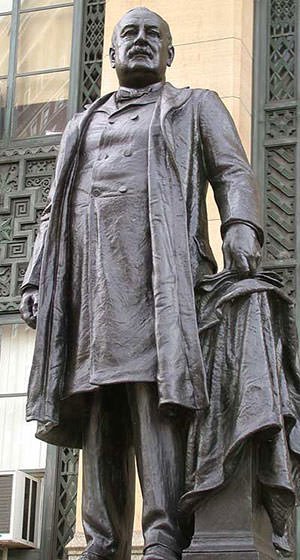
#2 HE SERVED AS THE 28TH GOVERNOR OF NEW YORK
After his rise in popularity as Mayor of Buffalo, Cleveland was asked to run as the Democratic candidate for Governor of New York. In the 1882 election for the post, Grover Cleveland defeated the Republican nominee Charles J. Folger by more than 190,000 votes. He received 535,318 votes against 342,464 for his opponent. This was the largest margin of victory in a contested New York election at the time. Cleveland maintained his strategy in his new role and vetoed what he perceived as extravagant and special-privilege legislation. He sent the legislature eight vetoes in his first two months in office. Grover Cleveland served as the 28th Governor of New York from January 1, 1883 to January 6, 1885. During his tenure, the New York and West Shore Railroad was completed; a state civil service commission was established; and economic reform was endorsed.
#3 HE SERVED AS THE 22ND AND 24TH PRESIDENT OF THE UNITED STATES
In the US presidential election of 1884, Grover Cleveland narrowly defeated Republican candidate and former United States Senator, James G. Blaine. He won the electoral vote 219 to 182 and the popular vote by around 0.6%. New York, with its 36 electors, decided the election by a margin of just 1,047 votes. Cleveland was defeated in the 1888 election by the Republican nominee Benjamin Harrison. He lost re-election in the Electoral College even though he won the popular vote by a narrow margin. In the 1892 election, Cleveland defeated the incumbent President Harrison in a re-match by winning both the popular and electoral vote. Grover Cleveland thus served as the 22nd and 24th President of the United States from March 4, 1885 to March 4, 1889 and from March 4, 1893 to March 4, 1897. He remains the only President in American history to serve two non-consecutive terms in office.
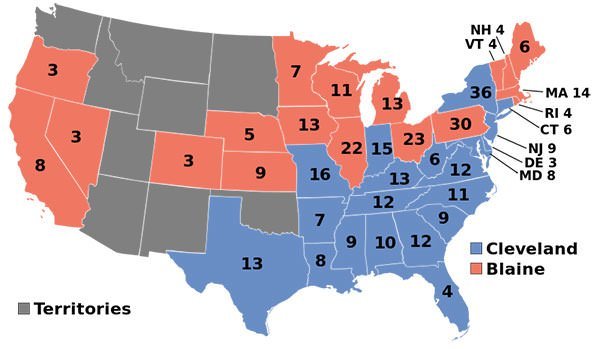
#4 AS PRESIDENT, HE FOLLOWED THE POLICY OF LIMITED GOVERNMENT
Glover Cleveland is considered a classical liberal President. He was devoted to limited governance in keeping with the ideals of the US Constitution. During his two terms, Cleveland vetoed more congressional bills than any other president except Franklin D. Roosevelt. He vetoed a bill granting phony pensions that congressmen were awarding in order to placate the Grand Army of the Republic, an organization of veterans of US military which was the most powerful political pressure group of late 19th century. He controversially vetoed the Texas Seed Bill which was to allow the Commissioner of Agriculture to purchase seed grain for distribution to farmers in certain counties of Texas that had suffered from drought. Cleveland based his veto on no such appropriation being there in the constitution. He also tried to lower tariffs through the Wilson-Gorman Tariff of 1894 but the reform was mostly nullified by more than 600 amendments that the Senate added.
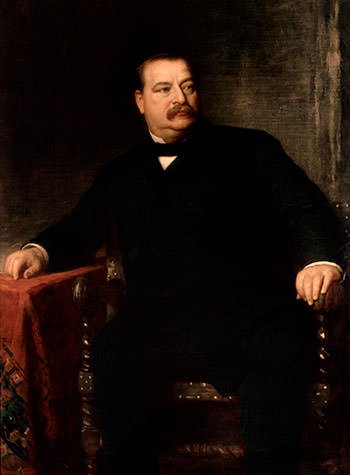
#5 HE ESTABLISHED ICC TO REGULATE MONOPOLISTIC PRACTICES
On February 4, 1887, President Cleveland signed into law the Interstate Commerce Act of 1887 to regulate the railroad industry, particularly its monopolistic practices. It required that railroad rates be “reasonable and just”; that railroads publicize shipping rates; and it also prohibited fare discrimination which targeted smaller markets, particularly farmers. The Interstate Commerce Act was the first federal law to regulate private industry in US. It created the Interstate Commerce Commission (ICC), a federal regulatory agency to monitor railroads and ensure that they complied with the new regulations. The ICC served as a model for later regulatory efforts and many later agencies were patterned after the ICC. Like ICC, they were organized as multi-headed independent commissions; and their members could have no economic ties to the industries they regulated.
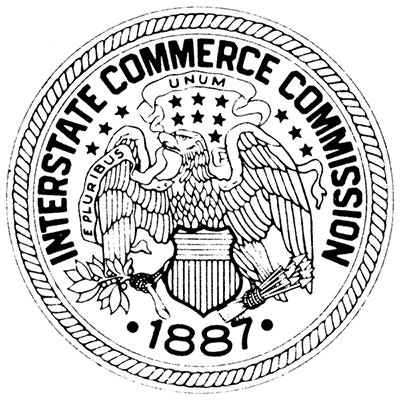
#6 HIS MILITARY POLICY FOCUSED ON STRENGTHENING U.S. DEFENSES
In 1885, President Cleveland appointed the Board of Fortifications to recommend a new coastal fortification system for the United States. Secretary of War William C. Endicott chaired the board. As no improvements to US coastal defenses had been made since the late 1870s, the board recommended a massive $127 million construction program which included new breech-loading rifled guns, mortars and naval minefields. Most of the recommendations were implemented and by 1910, 27 locations were defended by over 70 forts. The Endicott Program forts ushered the transition from mortar to concrete as a building material; and contained disappearing carriages which enabled a gun to hide from direct fire and made it invisible from the sea. The Endicott Era Defenses remained in use until 1945, when they were replaced during World War II.
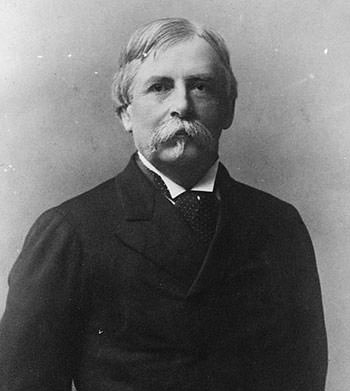
#7 He AND WILLIAM WHITNEY MODERNIZED THE U.S. NAVY
Under the Cleveland administration, the United States Navy moved towards modernization. Secretary of the Navy, William Collins Whitney, promoted the adoption by industry of the technology needed for the construction of steel steamships and modern naval guns. He also reorganized the finances and logistics of the Navy Department and helped make the Naval War College a success. Glover Cleveland canceled construction contracts that had resulted in inferior ships. Sixteen steel-hulled warships were ordered by the end of 1888. These ships later proved vital in the Spanish–American War of 1898, and many served in World War I. They included the battleships Maine and Texas, which were designed to match modern armored ships that South American nations acquired from Europe.
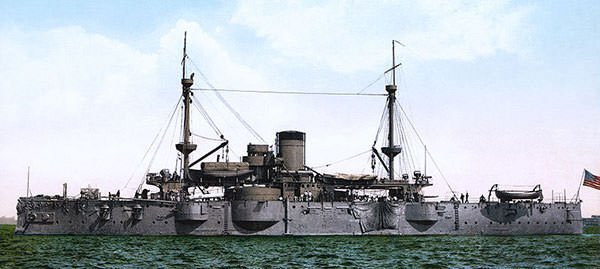
#8 He REPEALED THE SHERMAN SILVER ACT OF 1890
The second term of Grover Cleveland was marred by a serious economic depression which is known as the Panic of 1893. The panic was worsened by acute shortage of gold that resulted from the increased coinage of silver. President Cleveland repealed the Sherman Silver Act of 1890 which increased the amount of silver the government was required to purchase. This resulted in a decrease in the rate at which the Treasury’s gold reserves were being depleted and subsequent bond issues replenished supplies of gold. The repeal of Sherman Silver Act marked the beginning of the end of silver as a basis for American currency.
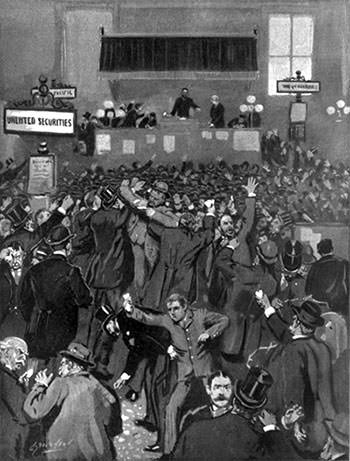
#9 HE EXTENDED THE MONROE DOCTRINE
The 1823 Monroe Doctrine, one of the longest-standing principles of US foreign policy, stated that US would regard further efforts by European nations to colonize states in the American continents as acts of aggression, requiring its intervention. The Venezuelan crisis of 1895 was an escalation of a longstanding dispute between Venezuela and UK about the territory of Essequibo and Guayana Esequiba, which UK claimed as part of British Guiana. President Cleveland adopted a broad interpretation of Monroe Doctrine and forced Britain to accept arbitration of the entire disputed territory to Venezuela. Though the tribunal convened to decide the matter, ultimately awarded most of the disputed territory to British Guiana; Cleveland’s action greatly improved US relations with Venezuela and provided a basis for the expansion of US interventionism in the Americas.
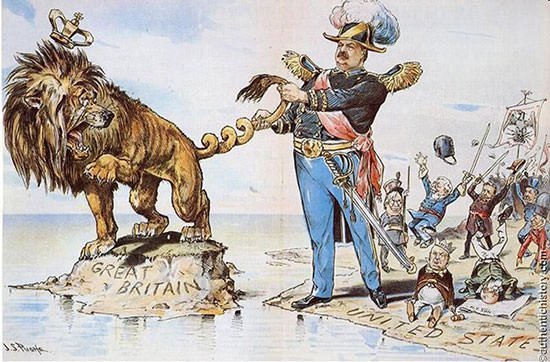
#10 He IS RENOWNED FOR HIS COMMITMENT TO CLASSICAL LIBERALISM
Grover Cleveland was an icon for American conservatives at the time and some consider him to be the last US president with a valid claim to be a classical liberal. He is acclaimed for his fight against political corruption and patronage; and for his honesty, self-reliance and integrity. Cleveland is considered by most historians to have been a successful leader and he is generally ranked somewhere in the middle in polls and surveys to rank American presidents. Cleveland was an important figure in the history of the Democratic Party as his victory in the 1884 Presidential election broke their losing steak of six consecutive elections, the longest losing streak for any major party in American political history. Along with Woodrow Wilson, Cleveland was one of only two Democrats to be elected president during the era of Republican political domination from 1861 to 1933.

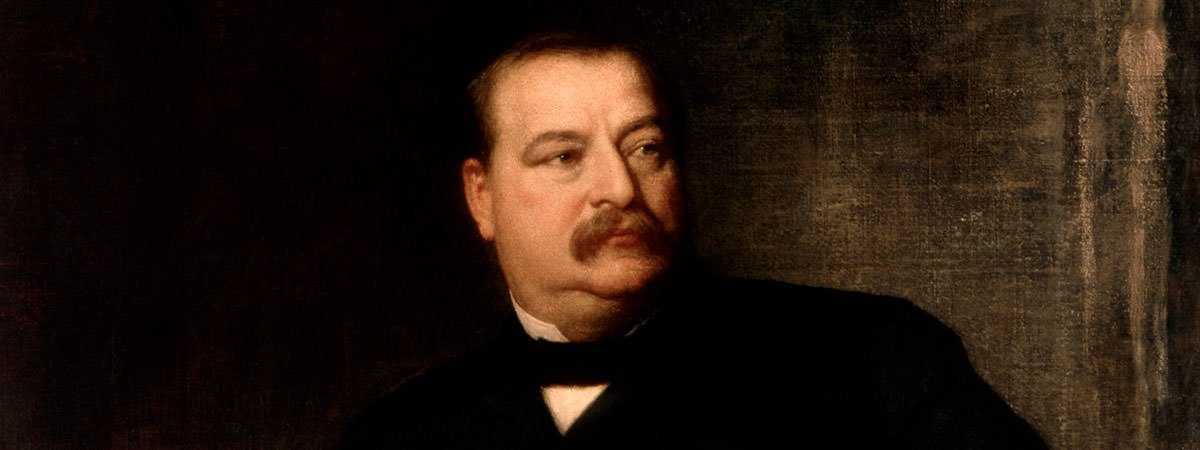
Thank God Trump is gone. As he was president, he sucked. Aboslutely. And is a Putin sellout from deals, multiple private talks with him, still is a sellout.
Now we have Biden, who you either vote the crazy guy who’s a sellout for an enemy regime or the puppet Biden of the democratic party who literally gets ran over by his own party. Disappointing! Where’s the GOOD 3RD PARTY for US, THE AMERICAN PEOPLE?
Great job people. In a day of Trump, who has similar policies to the past presidents of Hayes, Garfield, and Arthur. Cleveland falls right in to the same group as these limited Government gentlemen. As the Trump Presidency continues, Biden is part of the UNITED STATES CORPORATION, not our solvern governement of ” we the people,” we will continue to see a reconstruction of the correct articles of the constitution, original intent, etc.. and “we the people” will no longer be held under the boot of the USA CORP, established in 1871. God Bless America.
this was very unhelpful. Make sure you actually list ACCOMPLISHMENTS
Became Mayor, Governor, President 2x, Established ICC, Modernized the US Navy, IMproved foreign relations and helped to solve a depression, may not seem like much but pretty big for the American people.
were these even accomplishments